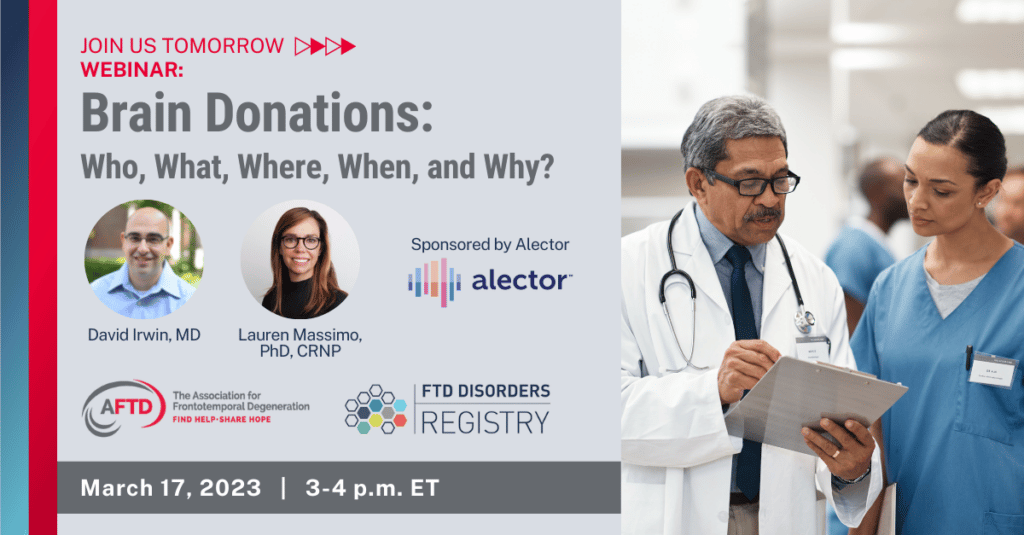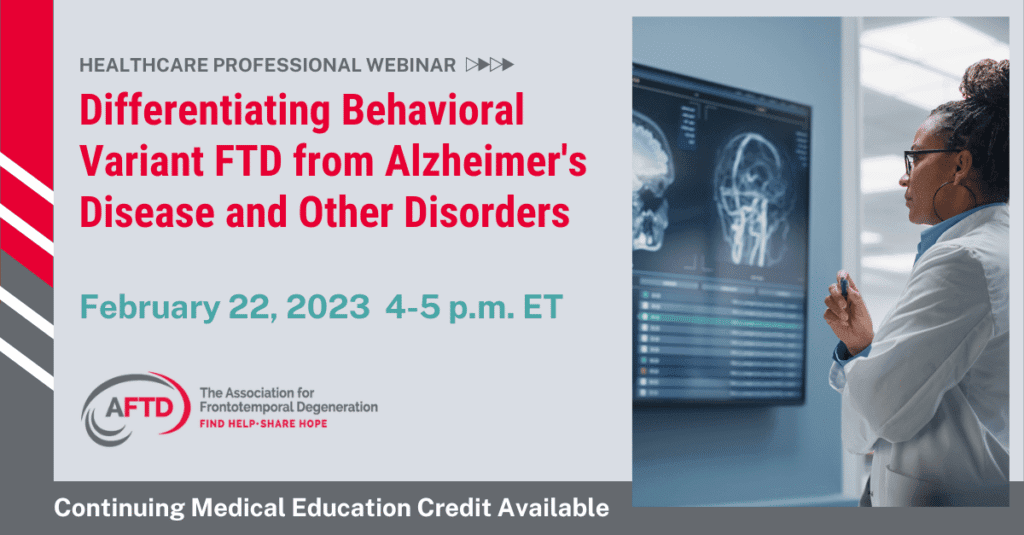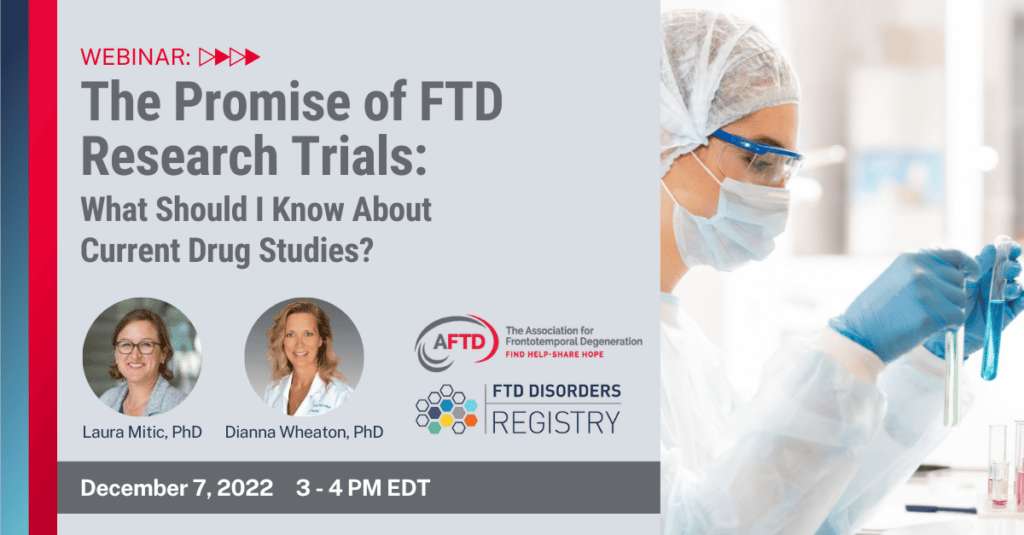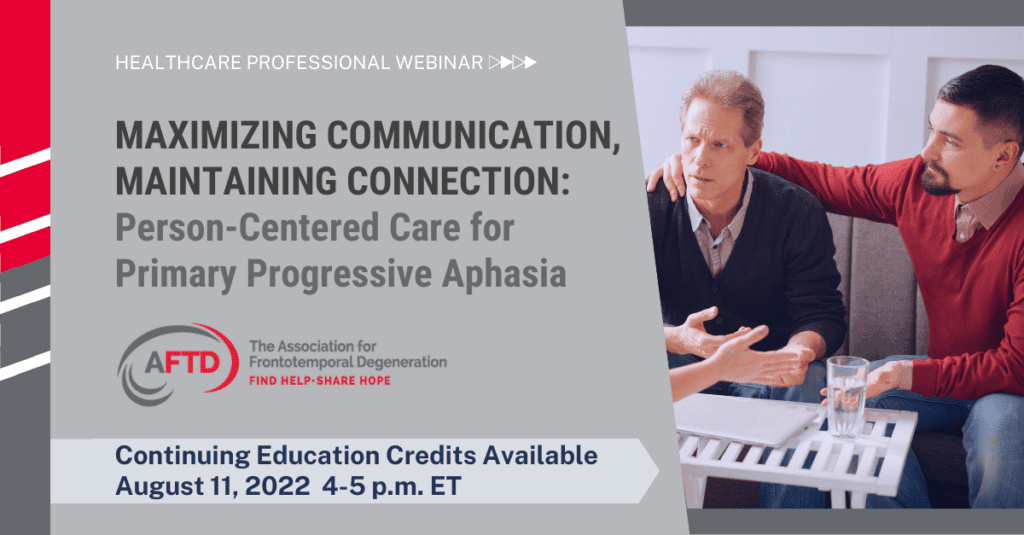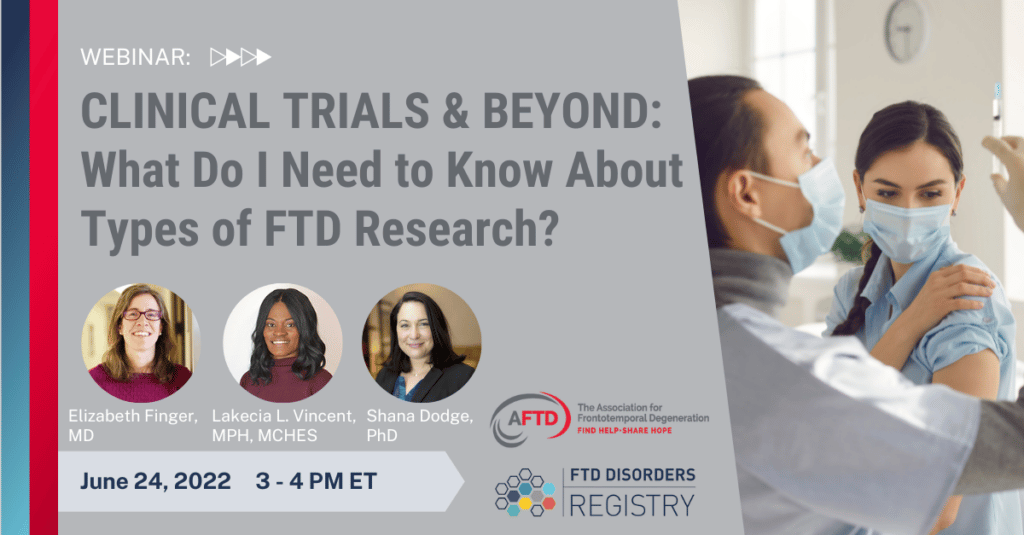What's New
Webinars
AFTD Webinar: Treatment of Behavioral Variant Frontotemporal Degeneration
Join Dr. Simon Ducharme, a neuropsychiatrist, researcher, and expert specializing in FTD, as he presents on the…
Perspectives in FTD Research Webinar: Brain Donations — Who, What, Where, When, and Why?
In this Perspectives in Research Webinar, presented jointly by AFTD and the FTD Disorders Registry, Dr. David…
AFTD Webinar: Differentiating Behavioral Variant FTD from Alzheimer’s and Other Disorders
Join Dr. Howard Rosen, a behavioral neurologist and FTD expert, as he presents a clear and practical…
AFTD Webinar: The Promise of FTD Research Trials — What Should I Know About Current Drug Studies?
The science of FTD is quickly evolving. While several years ago, there were no experimental treatments for…
AFTD Webinar: Person-Centered Care for Corticobasal Syndrome and Progressive Supranuclear Palsy
Corticobasal syndrome (CBS) and progressive supranuclear palsy (PSP) are FTD disorders that primarily affect movement and are…
AFTD Webinar: Maximizing Communication, Maintaining Connection — Person-Centered Care for PPA
Primary progressive aphasia (PPA) is a clinical neurodegenerative dementia syndrome, which can be caused by Alzheimer’s disease…
AFTD Webinar: Clinical Trials and Beyond — What Do I Need to Know about Types of FTD Research?
When people choose to participate in FTD research, scientists are able to gain a clearer understanding of…
AFTD Educational Webinar: Person-Centered Care for Behavioral Variant FTD
The symptoms of behavioral variant FTD (bvFTD), the most common FTD disorder, include impaired executive functioning and…
Perspectives in FTD Research Webinar: Amplifying Your Voice in FTD Research — Why Am I Asked So Many Questions?
When studying FTD, researchers ask a lot of questions. Research participants may find themselves thinking, “Why do…
Perspectives in FTD Research Webinar: FTD Biology and Testing — Why Do You Need My Samples?
The more we learn about FTD, the closer we come to having effective treatments and a cure….


